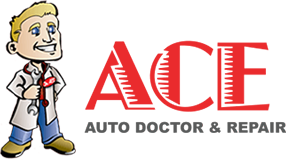Wheel bearings help your wheels spin. They sit inside the wheel hub. They support the weight of the vehicle. They let your wheels turn with little friction. Every time you drive, the wheel bearings are working. They face heat, pressure, and road force. Over time, they wear out. They may get damaged. If the grease breaks down, metal parts rub together. A damaged wheel bearing needs service. Driving with bad wheel bearings is not safe. The wheel can shake. The tire may move the wrong way. It can lead to tire wear or brake damage. A general repair shop can check your wheel hub and bearings.
Signs Your Wheel Bearing May Be Worn
One main sign of a bad wheel bearing is noise. You may hear a humming or rumbling sound. The noise can change with speed. It can get louder when turning. Some drivers think the sound comes from tires. But the real issue could be the wheel bearing. You may feel a shake in the steering wheel. The tires may wear unevenly. The wheel may feel loose. A wheel bearing can fail fully. This can cause the wheel to lock or fall off. A local repair shop can check each wheel. They use tools to check for bearing play. They can listen for bearing noise during a test drive.
Wheel Bearing Damage Affects Safety and Performance
A bad wheel bearing can cause more damage. It can ruin the wheel hub. It can affect the brakes. It can throw off the suspension. It puts more stress on the steering. Drivers may notice poor handling. They may have trouble braking. Some vehicles will pull to one side. A grinding wheel bearing can lower fuel economy. It makes the engine and drivetrain work harder. Safety systems like ABS can stop working. Replacing a worn bearing early helps protect the whole wheel system. Waiting can make repairs cost more. A full hub assembly or axle may need service.
Get Wheel Bearing Repairs at Ace Auto Doctor & Repair
At Ace Auto Doctor & Repair, our general repair shop helps find wheel bearing issues early. Our team checks for bearing noise, hub wear, and loose wheels. We inspect the wheel hub and surrounding parts. Our service protects your tires, brakes, and suspension. If you hear humming while driving, schedule a check. We handle all types of vehicles. Wheel bearing repairs are part of keeping your vehicle safe. Visit Ace Auto Doctor & Repair to book your repair. Let our techs help your vehicle stay strong on the road.

